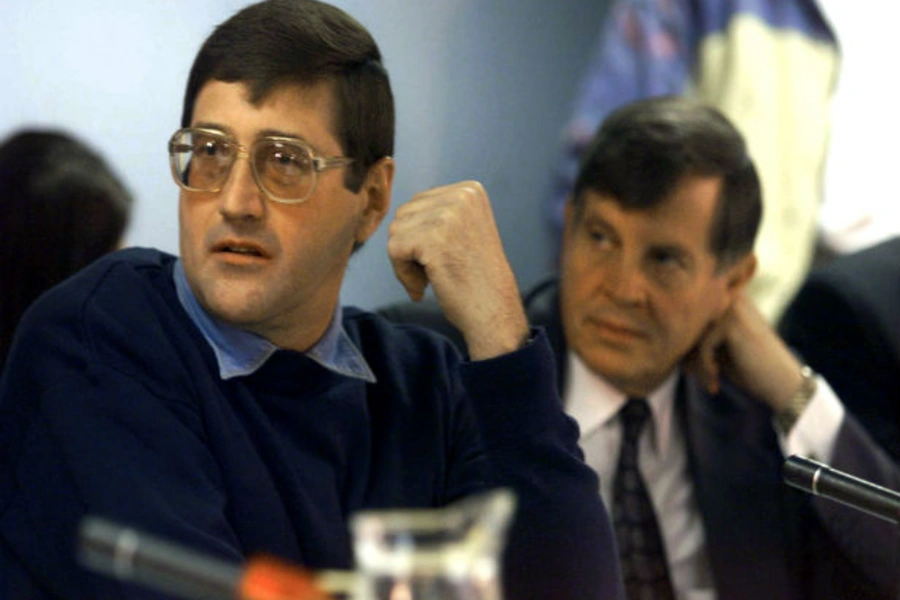More on:
Through the use of death squads many apartheid defenders conducted a dirty war against those whom they perceived as threatening the regime. Victims were of all races, and included Chris Hani, who was seen by some as a possible alternative to Nelson Mandela as the first president of non-racial South Africa.
But, only three white South Africans have been tried and convicted for their apartheid crimes: Eugene de Kock, Clive Derby-Lewis, and Ferdy Barnard. On January 30, Minister of Justice Michael Masutha approved De Kock’s parole “in the interest of nation building and reconciliation.” He denied an application from Derby-Lewis, who reportedly suffers from cancer, on the grounds that he did not meet the medical requirements, and continued to hold Barnard’s under advisement.
Eugene de Kock, nicknamed “Prime Evil,” was a colonel in the counter-insurgency unit of the South African police. In effect, he ran a death squad and was directly involved in torture. He confessed his crimes before the post-apartheid Truth and Reconciliation Commission, during which (and subsequently) he claimed that the upper reaches of the Nationalist (apartheid) government had been complicit in the operations of his unit. Among those accused was F.W. de Klerk, the then head of state and one of the negotiators of the transition to non-racial democracy. De Kock was prosecuted for crimes against humanity and sentenced to 212 years in prison. (South Africa abolished the death penalty at the time of the transition.) He regularly expressed remorse and, according to the South African media, assisted in the location of the remains of some of his victims so that they could receive traditional burials. In effect, he was paroled because of good behavior after having served twenty years of his sentence. To date, he is the only police officer to have ever been punished for apartheid era crimes.
By contrast, Derby-Lewis has not expressed remorse, at least to the same extent. He was a political figure, a founder of the right-wing Conservative party during the last days of apartheid, and a notorious racist. He was convicted of organizing the assassination of liberation icon Chris Hani who was the head of the Communist party. Derby-Lewis was sentenced to life imprisonment. Following the rejection of his application for parole, he said that he would “sue” the Minister of Justice.
Ferdi Barnard is described by the South African media as a hoodlum who was involved in drug trafficking and participated in the Civil Cooperation Bureau, a death-squad that reported to the apartheid era South African Defence Force. He was convicted of the murder of David Webster, a professor of anthropology and anti-apartheid activist, and of the attempted murder of Dullah Omar, then an anti-apartheid lawyer and later a minister in the Mandela and Mbeki governments. Barnard was sentenced to two life-terms plus 63 years.
Why have only three death squad operatives been tried and convicted? Part of the answer is that the Truth and Reconciliation Commission, established as part of the transition, instituted a procedure by which the confession of crimes could result in amnesty. However, few senior officials in the apartheid government took advantage of it. Perhaps more generally the answer is related to the fact that South Africa’s move to non-racial democracy in 1994 was a transition rather than a capitulation. Further, it is well-known that the liberation movements were also guilty of numerous human rights abuses. It would seem that an unstated consensus may have emerged not to inquire too closely into the past.
More on:
 Online Store
Online Store

